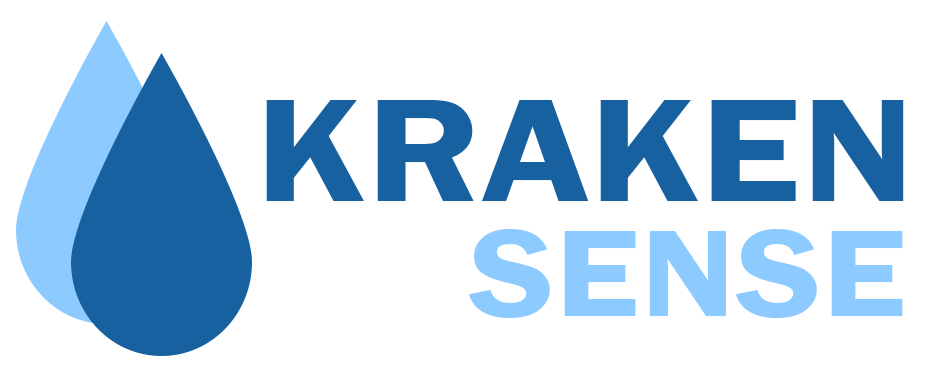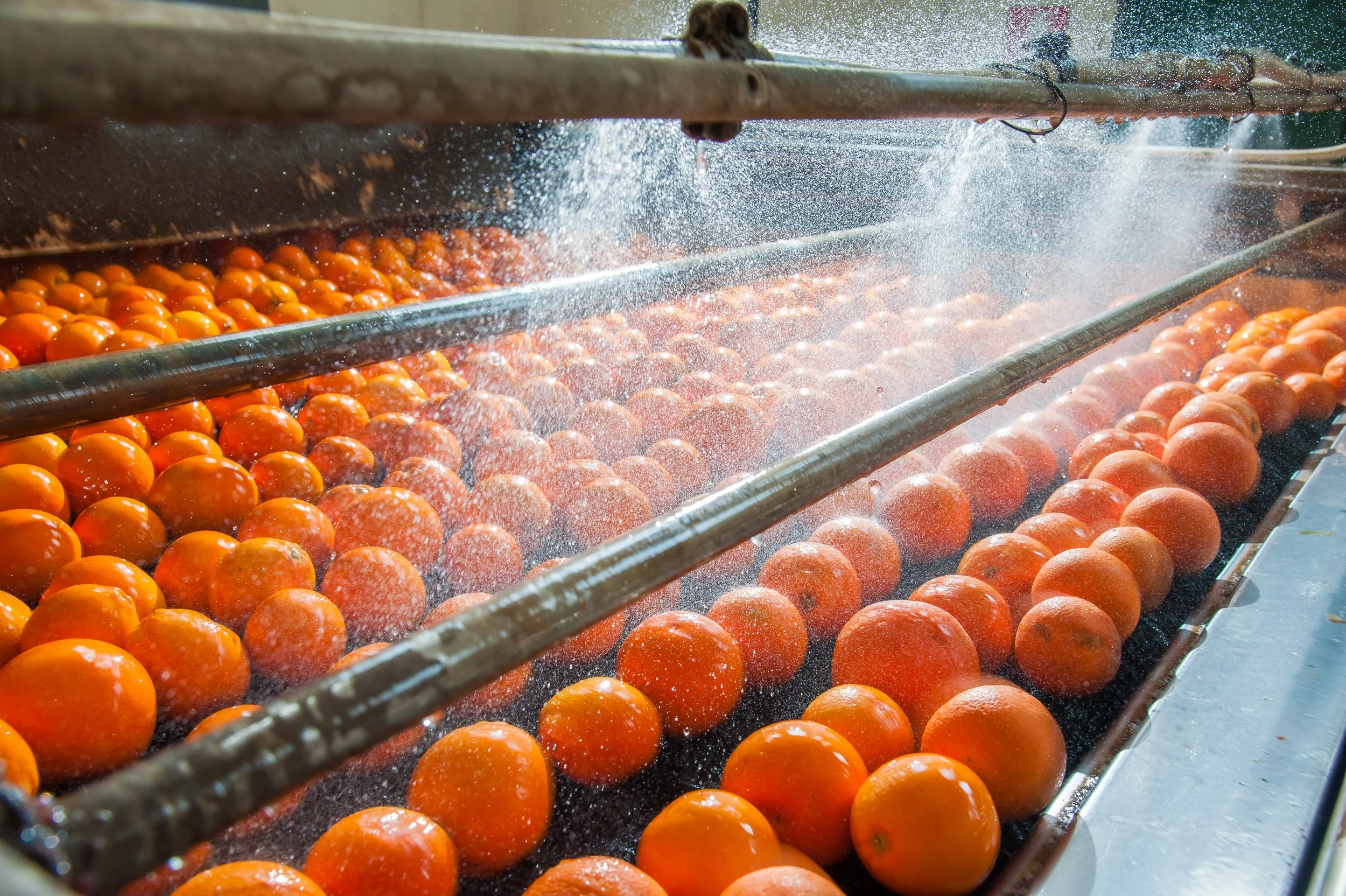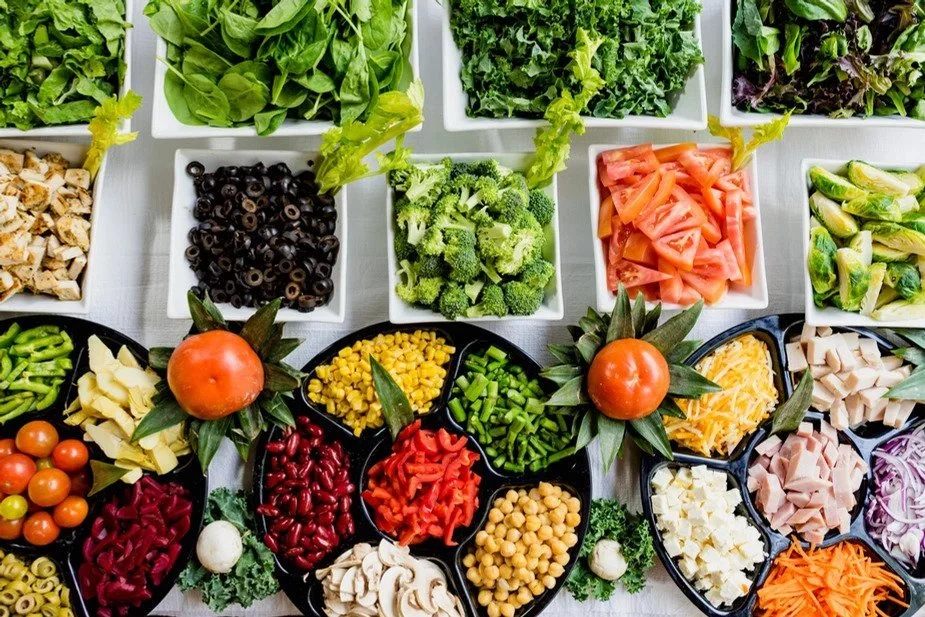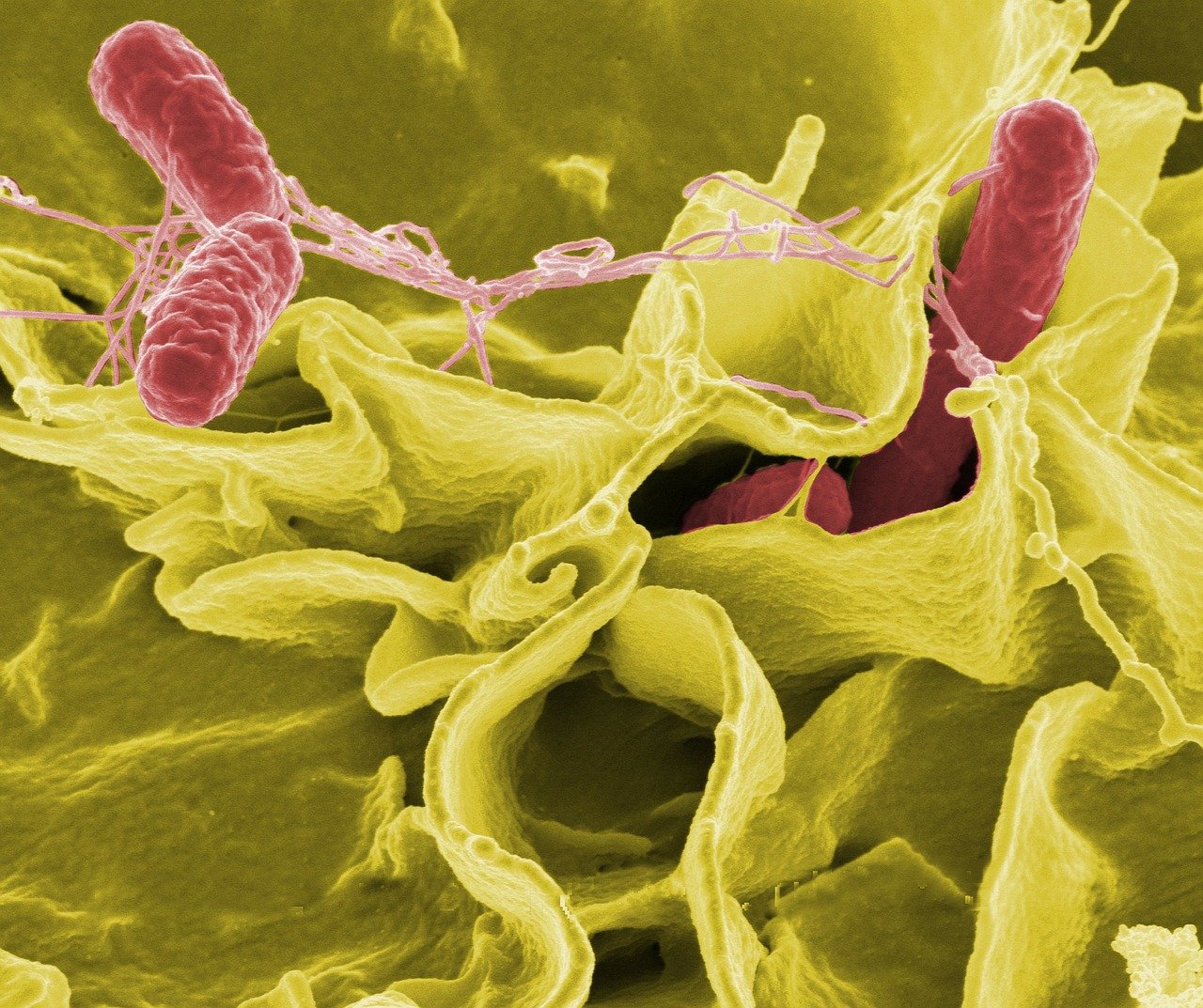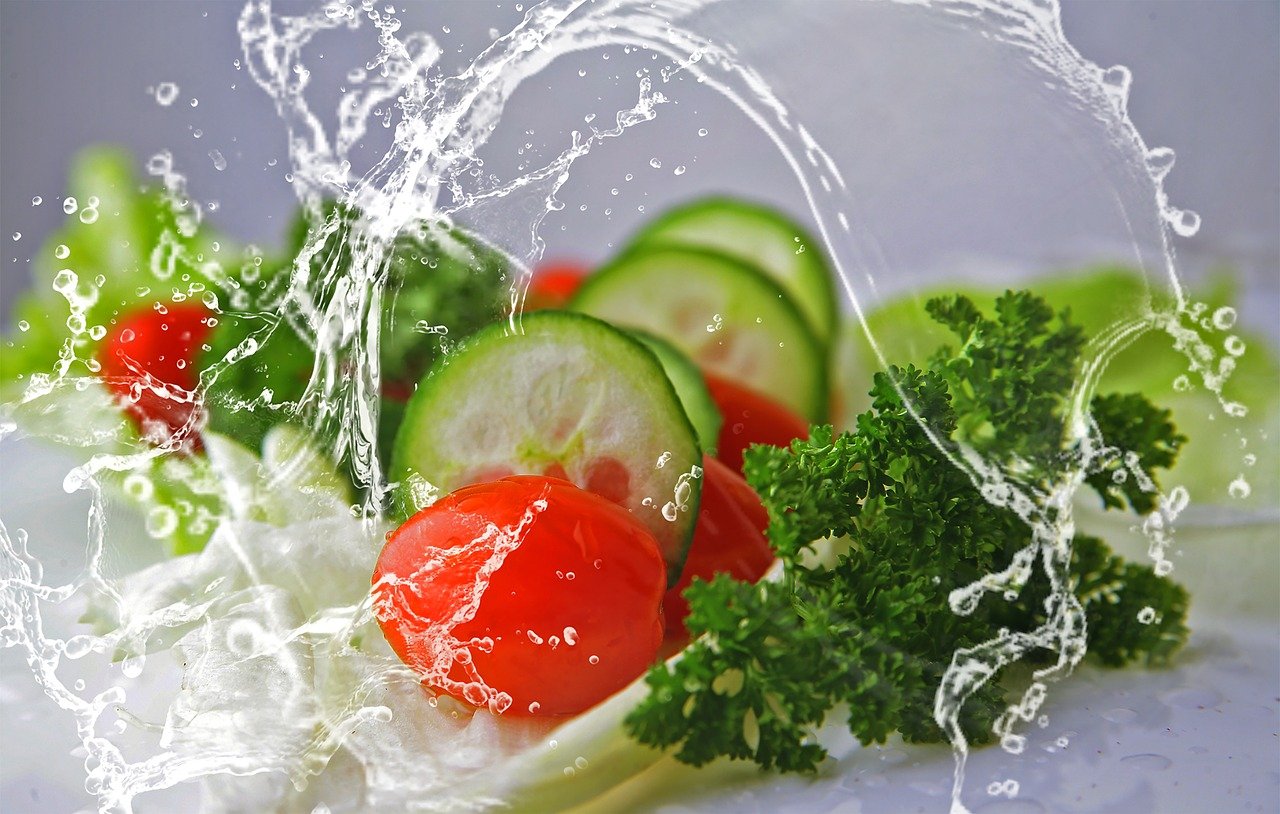
Food & Beverage Processing
Optimize testing protocols, reduce the risk of foodborne outbreaks, and prevent costly recalls by implementing the autonomous detection capabilities of the KRAKEN™.

Despite intensified food safety regulation, inspection, and enforcement, foodborne illnesses have been on the rise over the past decade. According to the CDC, foodborne illnesses infect approximately 48 million people in the US each year, killing 3000 people annually.
Foodborne illnesses are caused by pathogens, most notably Salmonella, E. Coli, Listeria, Vibrio, and Norovirus. When food or beverage contamination is confirmed, the product is often recalled from the market; however, recalls can be costly and time-consuming. When an outbreak of a certain pathogen emerges, it can take weeks or even months to trace it back to a specific food, if one is found at all. During this time, public health is compromised while the source of contamination is unknown.
However, rapid detection of foodborne pathogens can reduce the number of contaminated products entering the market altogether. While conventional methods can take several days to detect pathogens, our pathogen detection devices deliver results in just 60 minutes, allowing contamination to be contained and eliminated immediately. Our devices can sense pathogen contamination before the water has come in contact with the food, preventing costly recalls and disease outbreaks.
Our pathogen detection systems can be installed in any food or beverage processing plant. All they need are access to power, WiFi/GSM, and connection to water runoff or an inline piping system. The device takes water directly from the plant, using rapid pathogen detection sensors to continuously monitor water throughout the processing line to ensure each batch is safe. The ability to remotely set the sampling rate and time means you will always have water quality data at your fingertips.
Real-Time Contamination Surveillance
With real-time monitoring capabilities, KRAKEN™ takes a proactive stance against contamination. Get notified immediately upon detection of potential contamination along processing lines, ensuring that tainted products can be identified and removed before they enter the market.
Preventing Disease, Reducing Waste
KRAKEN™ acts as a sentinel against disease and wastage, catching contamination at the earliest stage. Say goodbye to expensive product recalls and dangerous foodborne disease outbreaks, safeguarding your products, your reputation, and the health of your customers.
Seamless Integration, Effortless Operation
Installing KRAKEN™ is a breeze – it only requires a Wifi/GSM network connection and a power source. The convenience of remotely configuring sampling rates and timing ensures that rapid pathogen detection is not just a possibility but a practical reality.
With KRAKEN™, you're not just detecting pathogens; you're upholding your commitment to food safety and consumer trust. Contact our team and embrace the future of food and beverage safety.
Fill out the form below to download the KRAKEN™ Food & Beverage brochure.
This year’s World Food Safety Day emphasizes the importance of being prepared for disruptions in the food chain, from minor mishaps to large-scale crises.
Mastitis is the most widespread and costly disease affecting dairy cattle worldwide. It is often caused by infection and can impact milk production and quality.
Ever wonder how that juicy burger or crisp salad arrives on your plate safe for you to eat? It's not just magic. The food and beverage industry relies on a system called Hazard Analysis and Critical Control Points (HACCP), an internationally recognized method for preventing foodborne illnesses. Combined with in-line pathogen detection, these systems work together to keep your food safe and delicious.
The global movement of goods and climate change have exacerbated the spread of plant pests and diseases, posing significant threats to agricultural productivity, biodiversity, and food security. In response, the United Nations has designated May 12th as the International Day of Plant Health to rally concerted efforts to protect plant health and mitigate the risks posed by pathogens.
In recent weeks, the agricultural community in the United States has been on high alert following the confirmation of Highly Pathogenic Avian Influenza (HPAI) in dairy milking cattle across several states.
Campylobacter is responsible for more cases of foodborne illness than you might expect. Often overshadowed by more notorious foodborne pathogens, Campylobacter remains a leading cause of bacterial gastroenteritis worldwide.
Ensuring food safety is a paramount concern for everyone, from farmers and producers to retailers and consumers. However, traditional methods of pathogen detection in the food industry have their limitations. Customized pathogen detection systems are a game-changer in food quality control, offering faster and more accurate solutions for identifying and mitigating pathogenic risks.
Millions of people rely on seafood as a primary source of protein. However, seafood is responsible for a significant proportion of foodborne illnesses and outbreaks each year. Chemicals, metals, marine toxins, and infectious agents have been found in seafood, including bacteria, viruses, and parasites causing symptoms that range from mild stomach irritation to life-threatening illnesses.
Pasteurization is a heat treatment process aimed at reducing pathogenic microorganisms present in food and beverages. Developed by the French microbiologist Louis Pasteur in the 19th century, pasteurization has become a cornerstone in ensuring the safety of various beverages and foods.
As the holiday season approaches, many of us eagerly anticipate the delicious Thanksgiving feast that awaits. However, it's essential to prioritize food safety to ensure that your celebration is not marred by foodborne illnesses.
Every year, millions of tons of food are lost or wasted across the globe. International Day of Awareness on Food Loss and Waste Reduction, observed on September 29th, serves as a reminder of the urgent need to address this global challenge to minimize the effects on world hunger, resource loss, and climate change.
Beyond the immediate health consequences, the cost of contamination in our food supply has far-reaching effects on economies worldwide. Unmask the invisible threat of foodborne pathogens and discover the intricate relationship between food safety, public health, and economic stability.
Listeria contamination can occur at different stages of the food chain, starting from the farm where the produce is grown, through processing and distribution, until it reaches the consumer's plate.
We were honored to attend the International Association for Food Protection (IAFP) 2023 conference! It was an extraordinary experience that brought together top professionals from around the world to discuss pressing food safety issues and explore groundbreaking technological innovations.
With millions of people suffering from foodborne illnesses each year, World Food Safety Day serves as a reminder that food safety is a collective responsibility that requires cooperation from individuals, businesses, and governments worldwide.
Safe food starts with safe water. Kraken Sense offers a real-time, automated solution for water testing and monitoring in the food supply chain, identifying pathogen contamination before it reaches the public.
Multiple Listeria monocytogenes outbreaks have recently emerged involving deli meat, cheese, and enoki mushrooms, along with an unknown food source. With 26 hospitalizations and 1 death across the U.S., the CDC warns people who are pregnant, aged 65 or older, or have a weakened immune system to take additional precautions.

